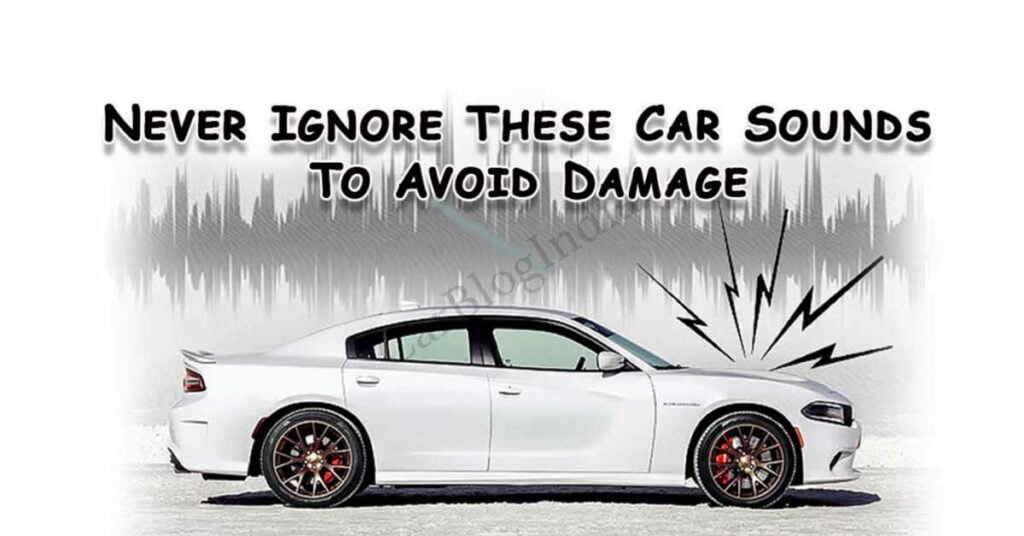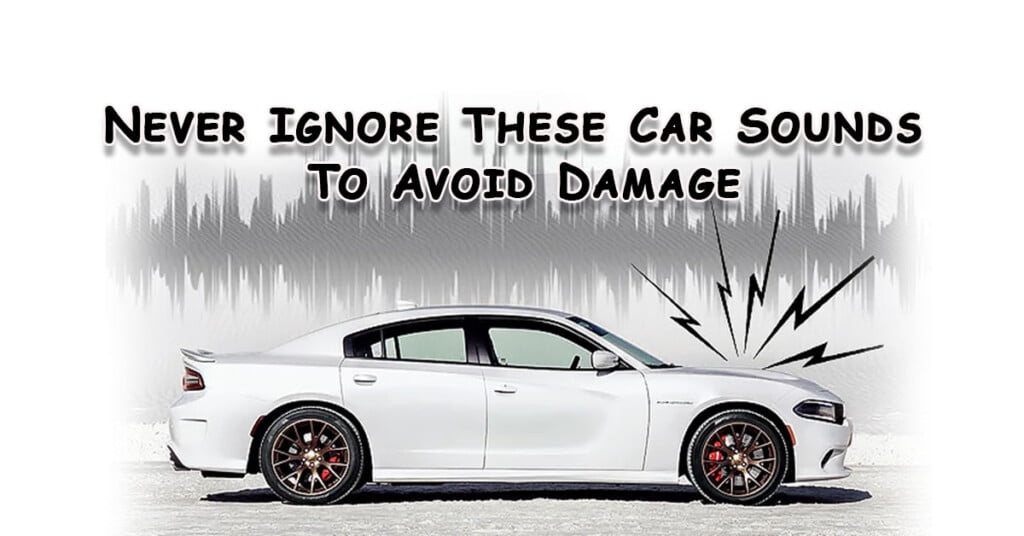Cars sounds are often the first sign of faults or problems. Ignoring any such sounds only leads to bigger damage.
Every car has its unique sound which gradually changes over the years. It highlights the health of the vehicle and should be paid attention to. If you hear a rattling, grinding, hiss, etc all of a sudden, you might want to find the source of such noises. Cars sounds are the first sign of future problems. Ignoring any such sounds won’t make a fault go away and only leads to bigger damage. While your car might be completely fine, it is better to be safe and get a checkup done. In ‘Never Ignore These Car Sounds To Avoid Damage’, let’s see what common car sounds might mean:
You May Also Like: Common Signs To Check The Health of The Brakes of Your Car!

You May Also Like: Here’s How to Easily Check Your Car Tires’ Health
1. Booms
While going over bumps, you might hear a “boom boom boom” noise. This is usually due to a problem in the car’s suspension. Quite likely, a strut or a shock has gone bad. Since the struts and shocks help to offer control while you’re driving the vehicle, such an issue should be immediately addressed. Additionally, if something (the ball joint or the suspension) has physically broken in your car, you might hear a sudden loud boom.
2. Grinding
A grinding noise is usually the result of the metal rubbing up against metal somewhere. This needs to be immediately checked as you could end up with a bigger problem with the water pump, an alternator, drive belt, etc.
3. Hissing
A hissing noise usually hints at a problem with the hoses around the engine. This might be due to an air leak, a vacuum leak, or a faulty hose. There might be a problem with the belt system also. You should get such a hiss checked out as any leak might negatively affect your engine’s performance, your mileage, or even your dashboard functions.
You May Also Like: Top 5 Electric Cars for Indians in Canada- VW ID.4 to Tesla Model 3
4. Knocking
This might be the most common-known problem and means your engine is low on fluids. However, there might a problem with the rod bearings. If you don’t catch up on this sound in time, you might need a new engine. It is advisable to act quickly and save a lot of money.
5. Rattling
Some front-wheel drive vehicles make a rattling noise while accelerating or making a hard turn. It might be due to rot in the joints of the tires. However, rattling might also hint at problems with your muffler or your brakes. Additionally, loose heat shields on exhaust pipes can rattle.
6. Squeaking
Once car brakes start wearing out, you are likely to hear squeaking sounds followed by a grinding sound. It is very important to pay attention to such a sound and get your brakes checked.
You May Also Like: State-Wise Percentage of Citizens That Owns a Car- J&K to Kerala
7. Squealing
A squealing sound while accelerating hints at a problem with the car belt. Such a sound should not be ignored, since cars only have one belt. A broken belt can leave you stranded.
8. Ticking and tapping
Ticking and tapping sounds usually hint at bad car care. As a car owner, you need to complete tune-ups at regular intervals. A simple oil change can improve your car’s health in the long run. In addition, there might be an outside object in the car somewhere.
9. Tire noise
Noises from tires are often ignored by many car owners. However, they might be due to an issue with the alignment or suspension. So if you notice an unusual sound or someone points it out, you should take notice of it.
10. Whining
Sometimes, you might hear a notable noise in automatic transmission mode. If you hear any clunks or a hard bang during a gear change, it’s good to good to check out. Additionally, any whining sounds hint that something is wrong with the transmission.
You May Also Like: Here’s how the Suzuki Gixxer SF 250 Sounds – Video!
Conclusion
Overall, regular maintenance can help you solve small problems before they get big. However, it is important to listen to your vehicle and treat it with care. Additionally, you might get used to your car sounds, so if an occasional passenger points out something usual, please check it out. Checking out any signs of trouble can save you a lot of money as you can solve small problems before they get big. By ignoring car sounds, you could end up wasting money on your car eventually.


